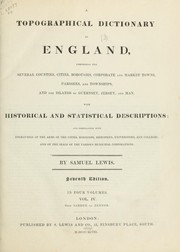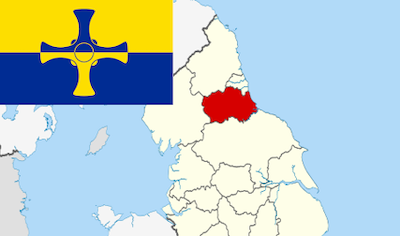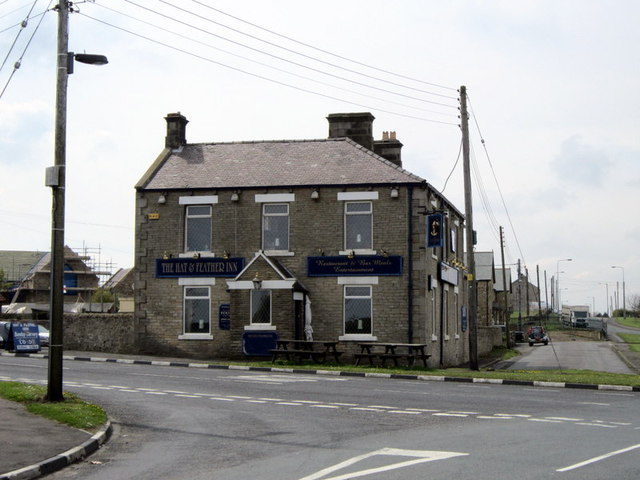Topics > County Durham > Medomsley > Medomsley, 1848
Medomsley, 1848
MEDOMSLEY, a chapelry, in the parish and union of Lanchester, W. division of Chester ward, N. division of the county of Durham, 2¼ miles (N.E.) from Shotley-Bridge, and 11 (S.W. by W.) from Gateshead; containing about 3,000 inhabitants, of whom 796 are in the township of Medomsley. It includes the townships of Benfieldside, and Consett with Knitsley, and is situated on the northern limit of the county, and divided for about six miles from Northumberland and the parishes of Winlaton and Ryton by the river Derwent. The township, which is crossed in its western part by the Roman Watling-street, from the Lanchester to the Ebchester station, contains by computation 5,890 acres, and consists of a number of small farms, partly arable and partly grass land, interspersed with about 500 acres of natural oak copse and other wood. In general the soil is a strong clay, suited to the culture of wheat, but in some parts it is of a lighter quality; the surface rises rapidly both from the east and west, until, at the village, it attains a height of about 900 feet above the level of the sea. The seam of coal called the "Hutton Seams," which is here upwards of seven feet thick, is worked in two collieries in Medomsley. There are also quarries of good freestone used for building purposes, and various strata of ironstone, which latter are extensively wrought by the Derwent Iron Company, and the produce conveyed by railway to their furnaces at Conside: the quality of the iron is said to be superior to that of any hitherto produced in the north of England. At Derwent Cote, in the township, is a forge for iron and steel. The village is pleasantly situated on an eminence skirted by rich meads, and commanding a beautiful view of the vale of Derwent, and the distant hills beyond the Tyne.
The living is a perpetual curacy in the patronage of the Bishop, with a net income of about £250, arising out of glebe lands and certain augmentations from the surplus revenues of the see of Durham: the impropriate tithes have been commuted for £183. 19. The chapel, dedicated to St. Mary Magdalene, and built in 1280, stands at the west end of the village, and is in the early English style, consisting of a nave and chancel of equal width, separated by an arch springing from corbels on either side. The roof is of lead, resting on massive oak beams. The windows are lancet-shaped, and of very small dimensions; the east window, which is handsome, is of three lights: there is a piscina in the south wall under a trefoil arch with good mouldings. A porch existed about eighty years since on the south side, but it was taken down, and a vestry built against the south door. The chapel is said to have suffered much from the inroads of the Scots. In the burial-ground are three stone coffins, two having the figure of a cross with a sword suspended, and the other bearing a longitudinal inscription, now illegible. There are places of worship for Baptists, Primitive Methodists, Wesleyans, and the Society of Friends; and numerous schools. To the west of the village, on a farm called Bunker's Hill, may be traced three distinct lines of military defence, supposed to have been thrown up by the Scottish army when retreating from the battle of Nevill's Cross. The elegant and accomplished Henry Swinburne, author of Travels in Spain (1779), was owner of the manor of Hamsterley, in the township; and Hamsterley Hall, a handsome mansion in a sheltered valley on the Pont burn, bears strong proofs of his refined taste, in the beautiful arrangement of its shrubberies and walks, and the selection of fine trees that adorn them.
Extract from: A Topographical Dictionary of England comprising the several counties, cities, boroughs, corporate and market towns, parishes, and townships..... 7th Edition, by Samuel Lewis, London, 1848.

Co-Curate Page
Benfieldside, 1848
- BENFIELDSIDE, a township, in the chapelry of Medomsley, parish and union of Lanchester, W. division of Chester ward, N. division of the county of Durham, 14 miles (N.W. by N.) …

Co-Curate Page
Consett with Knitsley Township, 1848
- CONSIDE, or CONSETT, with Knitsley, a township, in the chapelry of Medomsley, parish and union of Lanchester, W. division of Chester ward, N. division of the county of Durham, 14½ …


Co-Curate Page
Benfieldside, 1848
- BENFIELDSIDE, a township, in the chapelry of Medomsley, parish and union of Lanchester, W. division of Chester ward, N. division of the county of Durham, 14 miles (N.W. by N.) …



